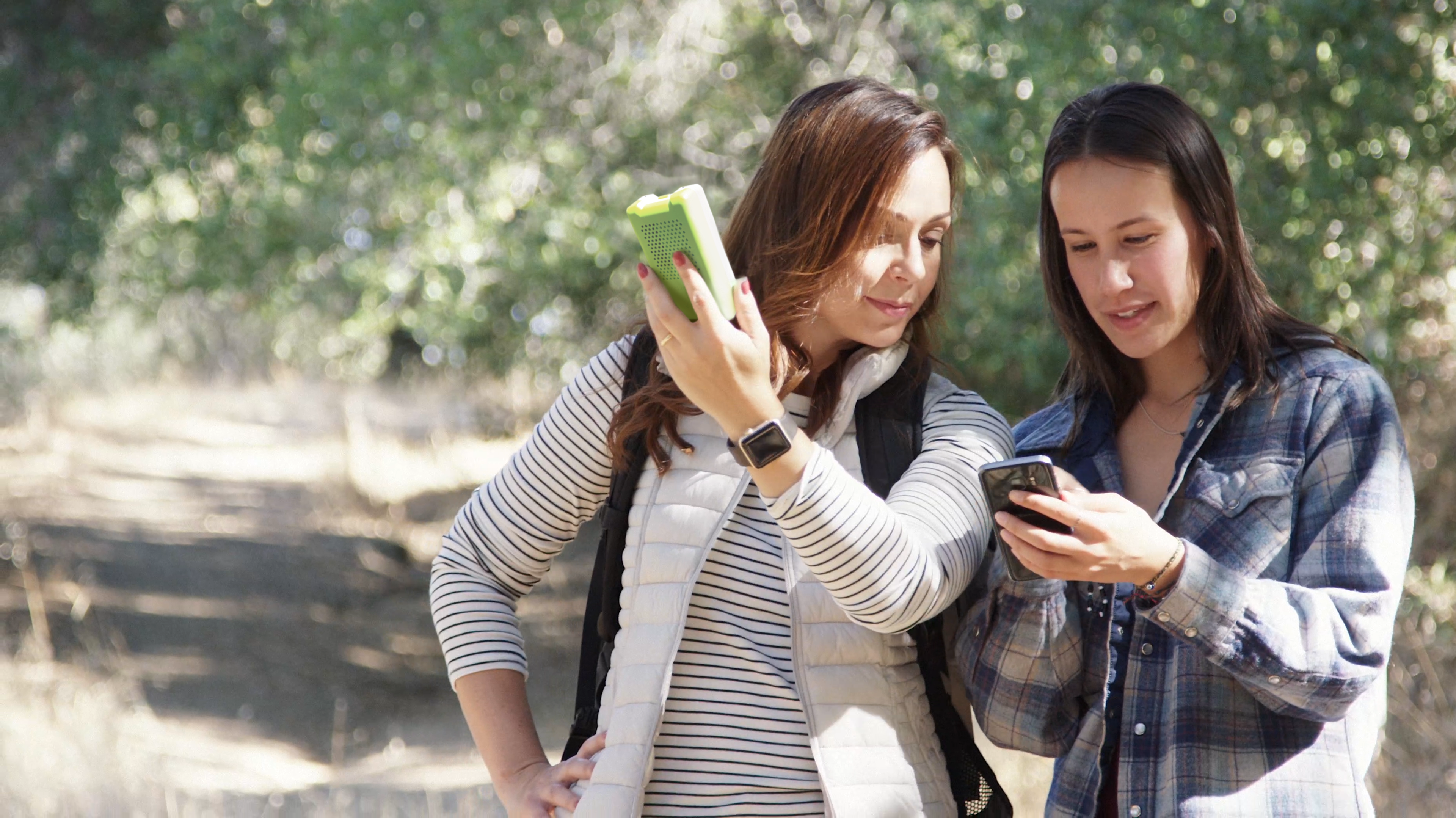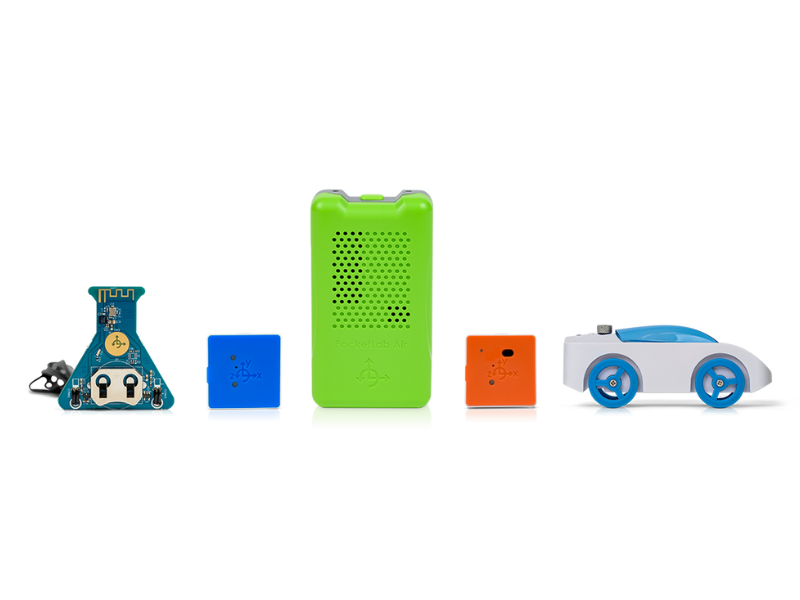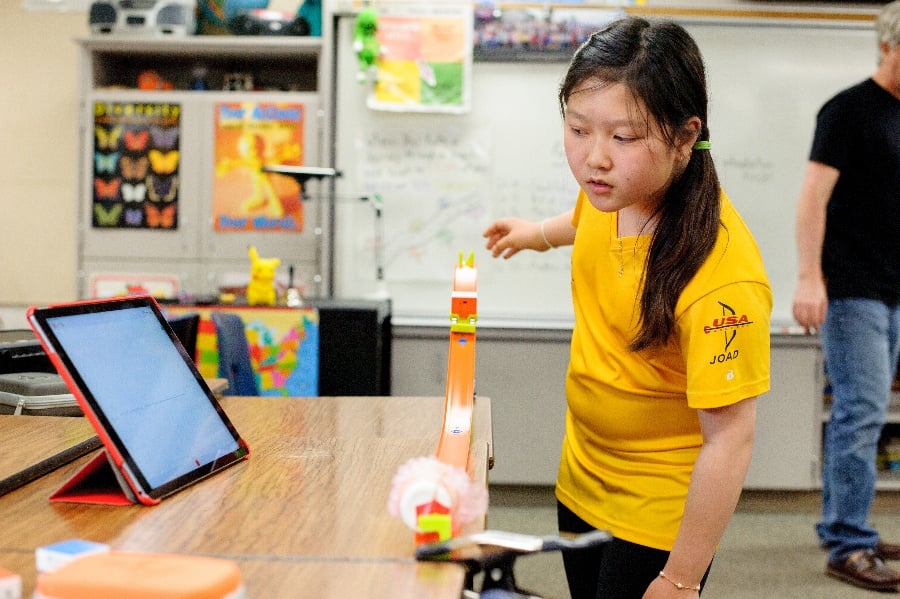Students Take Measuring Air Quality into their own Hands
Citizen science engages students in important topics, while empowering them to collect real data and contribute to scientific goals. Students that...
3 min read
The PocketLab Team Aug 20, 2021 2:29:06 PM

DonorsChoose helps public school educators get the classroom supplies they need to deliver exceptional education. Read on to find out if you’re eligible to use this incredible crowd-sourcing tool.
Of course you do. You’re a teacher with a limited budget.
You care about delivering out-of-this-world education to your students, but getting the right supplies to make learning fun and engaging can be a challenge.
DonorsChoose (DonorsChoose.org) is a free, non-profit website that allows educators and teachers to easily fundraise for classroom supplies or projects. It’s similar to go-fund-me but specifically for teachers.
This cool fundraising tool is built for public school educators. Not just anyone can submit a project to fundraise.
So, how do you find out if you can get funding? DonorsChoose has a comprehensive list of eligibility requirements on their website.
Here’s the quick answer:
If you’re eligible, that’s great news. Now, how do you turn those lesson plans into lesson cans?
Before you submit to Donors Choose, review the guidelines below. Requesting classroom supplies for projects that fit these criteria are most likely to get approved and funded.
You can submit projects that can be carried out at any time during the school year, as it can take anywhere from four minutes to four months for a project to be fully funded.
Every project created on Donors Choose is reviewed and vetted by teacher volunteers to make sure they meet eligibility requirements. When a project is funded, Donors Choose purchases the materials directly from the vendor and has them shipped directly to the school.
What if I’m not eligible?
Unfortunately, administrators, trainers, parents, aides, after-school coaches, substitutes, part-time teachers, Early Head Start educators, and supporting school staff like cafeteria workers and bus drivers are not eligible to use Donors Choose. If you fall into this category, please forward this article to a FTE teacher who might be able to get funding for their projects.
If you teach at a private, parochial or non-profit school, you’re in luck. Adopt a Classroom and Good360 are great alternatives to Donors Choose.
I bet you’re wondering how funding a project works on DonorsChoose. It’s actually pretty clever.
The whole Donors Choose system works on a point system. When you first sign up for a Donors Choose account, you will be given 3 points to use. Every time you submit a project, you spend one of these points.
Here’s the breakdown:
You may be thinking, “That’s great I can submit up to three projects from the start, but what if I have one of those special requests?”
The good news is that you can also earn points (and it’s actually pretty easy).
Each of these items will get you 1 additional point:
Once you fund your first two projects, all you have to do is upload your impact letter and student thank-yous, and — there you go — you have the 6 points you need for that special project you’ve been dreaming about.
Some PocketLab products can be added to a project through our approved vendor, Carolina Biological. If you don’t see the PocketLab product you’re looking for, don’t fret. Simply create a “special request” on DonorsChoose, then get in touch with us to help with the process.
After earning enough points to create a “special request,” add a PocketLab sensor to your wish list to get it funded. Easy as that.
P.S. We also contribute to any project that features PocketLab. Email us at contact@thepocketlab.com to let us know about your project to get your contribution.
Written by Scott Kiessig and Michael Doane

Citizen science engages students in important topics, while empowering them to collect real data and contribute to scientific goals. Students that...

PocketLab products have revolutionized hands-on learning in science, technology, engineering, and mathematics (STEM) education. While many educators...

In today's educational landscape, hands-on learning experiences play a crucial role in engaging students and fostering a deeper understanding of...